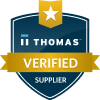Thermal barrier coatings (TBCs) have become an increasingly popular technology in recent years. TBCs are advanced materials that provide thermal insulation for components operating at high temperatures, such as in jet engines, gas turbines, and automotive engines. While TBCs offer important performance benefits, some have raised concerns about their safety. In this blog, we’ll take an in-depth look at TBC safety.
How Do Thermal Barrier Coatings Work?
TBCs are made from ceramic materials that have low thermal conductivity. They are applied as a coating onto metal components like turbine blades. The coating provides an insulating barrier that reduces heat transfer to the underlying metal. This allows the component to operate at higher temperatures without failing from thermal stress or heat damage. The most common TBC ceramic materials are yttria-stabilized zirconia and hafnia-yttria mixtures.
TBC Safety Concerns
Most safety concerns related to TBCs fall into two categories:
- Exposure risks during application and use
- Environmental impacts from ingredient materials
Let’s explore each of these areas in more detail.
Exposure Risks
TBCs are applied using specialized thermal spray techniques. The coating process can generate ceramic particles and vapors that could potentially be hazardous if inhaled. However, there are strict protocols in place to protect workers. TBC application is always performed in controlled environments with proper ventilation, protective gear, and monitoring.
Once applied, TBC exposures are minimal. The coatings are very stable and do not degrade or give off emissions under normal operating conditions. The underlying metals and alloys have higher health risks than the inert ceramic coating. Any exposures resulting from component wear or damage are incidental. Proper handling procedures prevent risks.
Overall, health agencies have not identified any major exposure hazards from industrial or commercial use of TBCs when proper procedures are followed. Consumer automotive applications also do not raise significant concerns.

Environmental Impacts
Ceramic TBC ingredients like zirconia, hafnia, and yttria have low toxicity. They are not considered hazardous waste. Some TBCs do contain small amounts of rare earth metals to enhance properties. Mining and refining these materials does have environmental impacts.
However, many TBC manufacturers have made great strides in developing coatings that eliminate or minimize rare earth content. Improved recycling programs are also helping reduce new rare earth mining needs. With proper precautions and responsibly-sourced ingredients, TBCs have a low overall ecological impact.
How Safe is ThermaCote?
When it comes to safety, ThermaCote sets the gold standard for thermal barrier coatings. To start, ThermaCote has obtained third-party certification verifying its ultra-low VOC levels. The product emits just 5.3 grams per liter of VOCs, meeting stringent standards for indoor air quality in California classrooms and offices. Compared to most paints and coatings, ThermaCote’s low VOC output is much friendlier for interior environments.
Additionally, ThermaCote contains no hazardous components in its formulation. Both the manufacturing process and application are free of any ingredients that could pose harm. ThermaCote is produced using a water-based acrylic formula to maximize environmental friendliness.
Furthermore, our team behind ThermaCote utilizes responsible sourcing and recycling to limit ecological impacts. All told, ThermaCote checks every box when it comes to safety for people and the planet. You can feel confident that ThermaCote’s thermal barrier coating technology protects critical components without compromising on health or sustainability factors. When performance, quality, and safety matter, ThermaCote rises above the rest.
Final Thoughts
Based on current evidence, thermal barrier coatings present minimal health or environmental hazards. Worker safety protocols and responsible manufacturing approaches help ensure TBC risks are well controlled. Continued testing and tracking will identify any potential emerging concerns early. But for now, TBCs remain one of the most safe and effective technologies for high temperature insulation across many critical industries.
If you’re looking for an energy-saving, corrosion-protective thermal barrier coating, be sure to visit thermacote.com to learn more about our innovative weather coating solutions. ThermaCote offers superior performance and safety when it comes to insulating your building envelopes and critical components.

